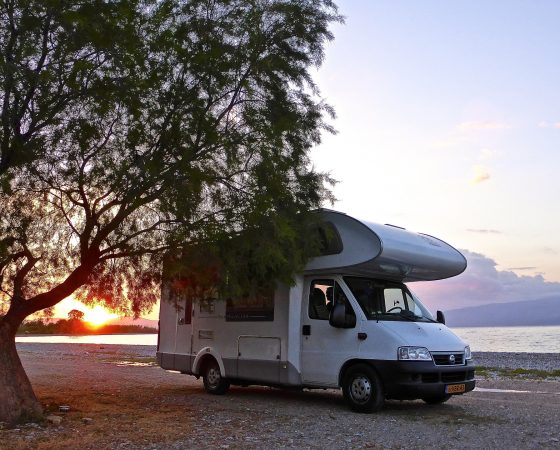Few things feel more classically American than a cross-country road trip in an RV. But traveling in a motorhome takes a little more preparation than your average camping trip. Being in charge of a large vehicle is a big responsibility, and you’ll need to be ready for everything the road throws at you. Here are five things you can’t forget to do before your next RV adventure
Have Your RV Inspected and Serviced
Most RV trips mean many long miles on the road, and the last thing you want is for your ride to break down with no town in sight. Make sure your motorhome is roadworthy before you depart by taking it to an auto shop for servicing and a full safety inspection. While the pros should detect and fix any major safety issues, it’s also a good idea to learn how to do a basic on-the-go RV inspection.
Use rest stops and gas fill-ups as an opportunity to inspect your motorhome’s tire air pressure, brakes, headlights and taillights, and hitch. Regularly checking that everything is in place and working properly protects you from a roadside calamity.
Learn How to Drive It
Whether you own your RV or plan to rent one, it’s important to be comfortable behind the wheel before the trip begins. You may be surprised at just how different driving an RV feels compared to a regular passenger car.
Practice RV driving on varied terrain so you’re comfortable performing every maneuver from parking in a busy lot to driving up a steep mountain road. Adjust your seat and mirrors to give you the best view of the road and get familiar with the logistics of towing a trailer. If you don’t own your RV, it’s worth the expense of renting one to test drive for a day.
Plan Your Route
An RV road trip can take you into remote parts of the country where you’re lucky to find a gas station, let alone cell phone reception. Avoid getting stranded by deciding on a route ahead of time and picking a few alternate roads in case you hit traffic or construction.
A GPS is a great tool, but it may not work in isolated areas. Make sure you always have a printed atlas in your car so you can find your way no matter how far the closest cell tower is.
Make RV Park Reservations
If hunting for a safe RV park in the middle of the night isn’t your idea of a good time, make sure you reserve RV park sites in advance. Decide ahead of time how many hours you’ll travel each day and where you plan to stop. From there, you can compare campgrounds to find the right one.
It’s not a bad idea to locate nearby campgrounds and boondocking spots as well. If something comes up and you can’t make it to your intended destination, you’ll have alternatives handy.
Pack It Up
Once your motorhome is tuned up, your route chosen, and your bookings made, it’s time to pack up the RV and hit the road. Make sure you pack groceries, cookware, bath supplies, and clothing, in addition to games and books for long hours in the passenger seat. Bring sunscreen, bug spray, comfortable shoes, and other gear for outdoor activities. Pack a first aid kit, a car emergency kit, and essential RV tools in an accessible location. Don’t forget a small fire extinguisher to deal with campfires and accidents in the motorhome.
Once your RV is packed up, make sure everything is secured and get started on the trip of a lifetime.
Author

